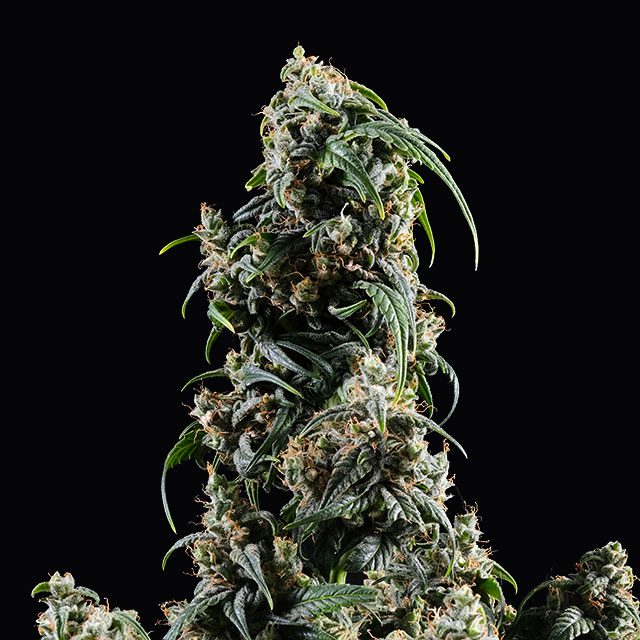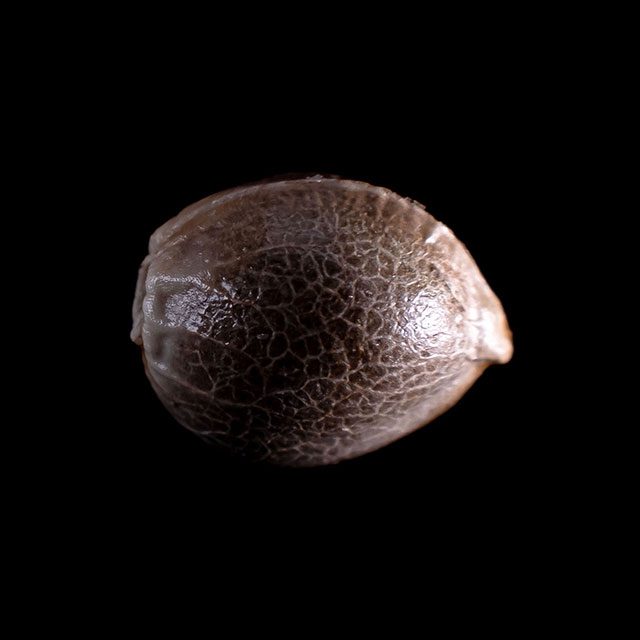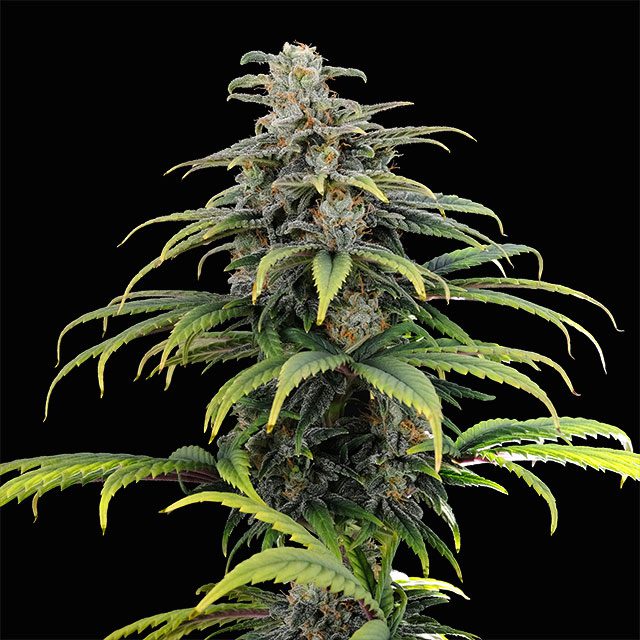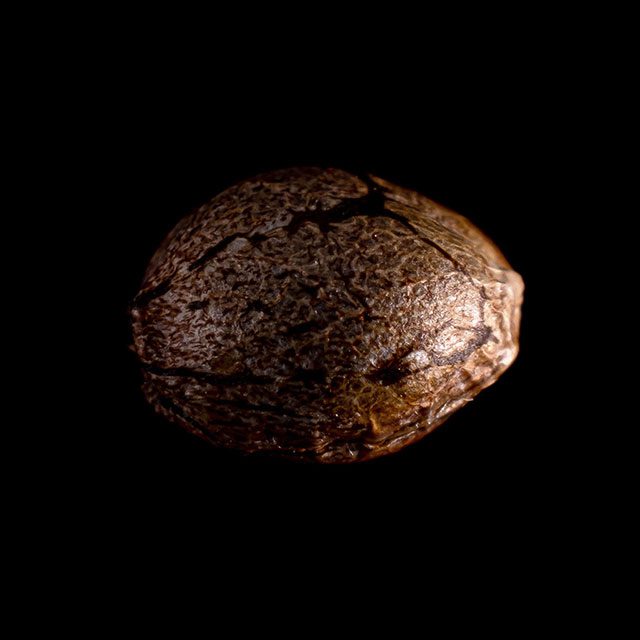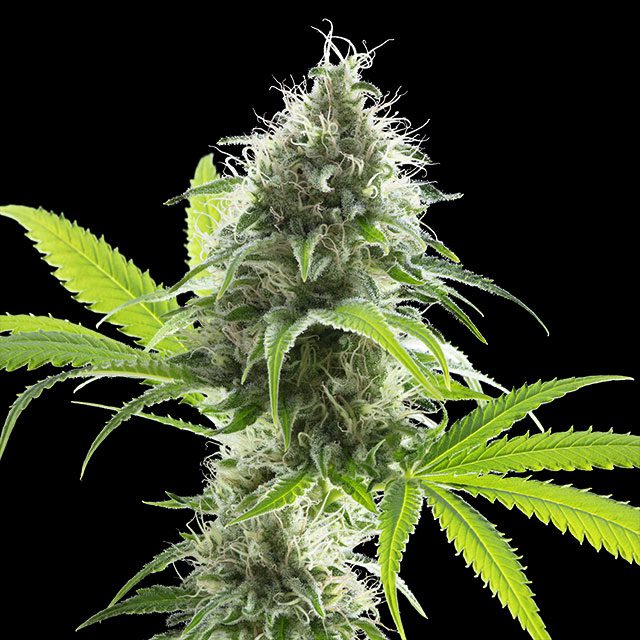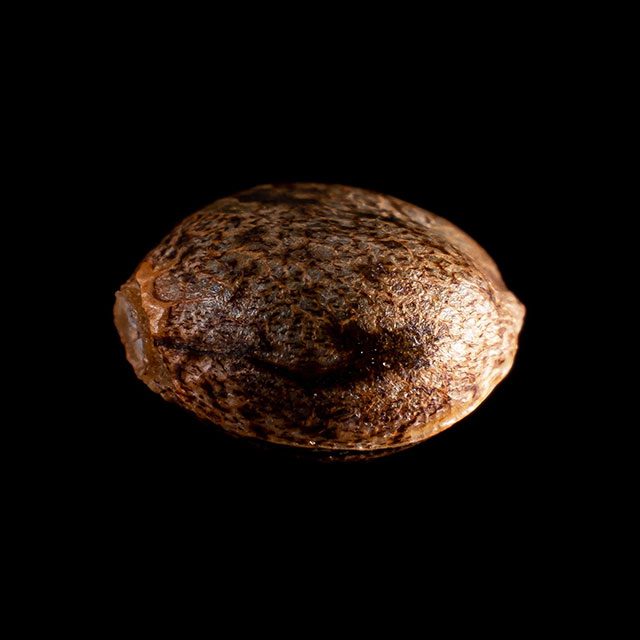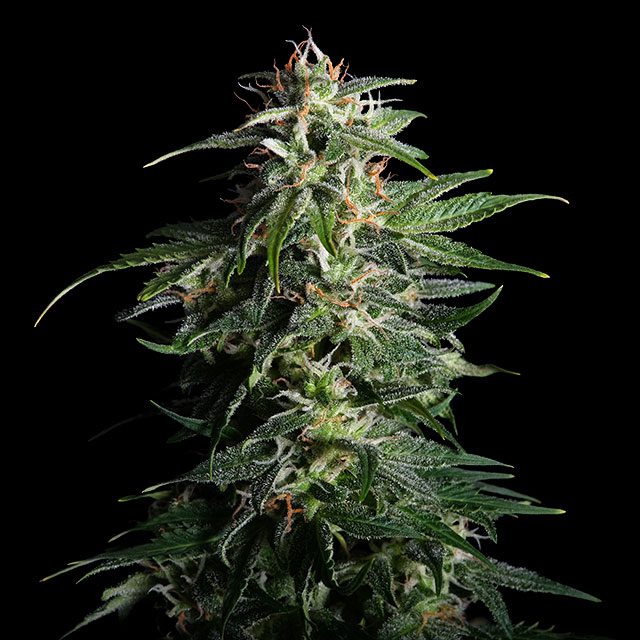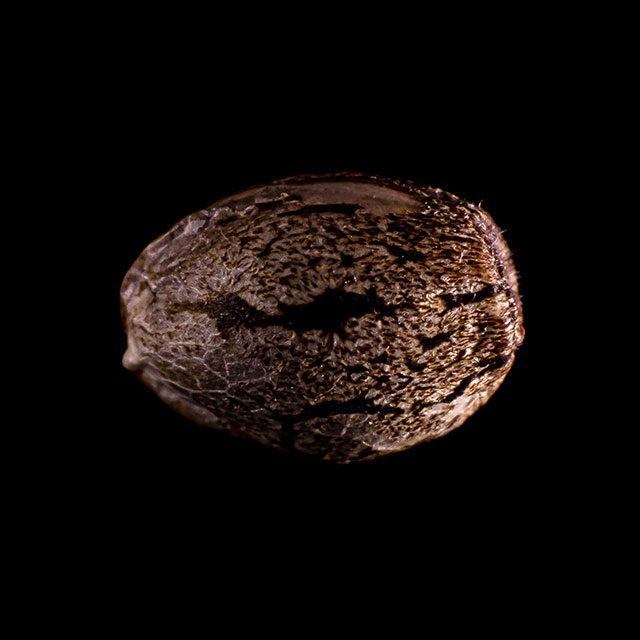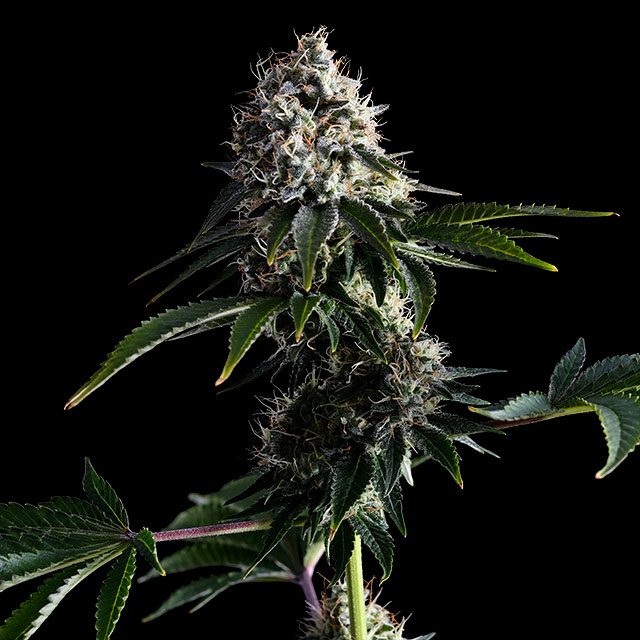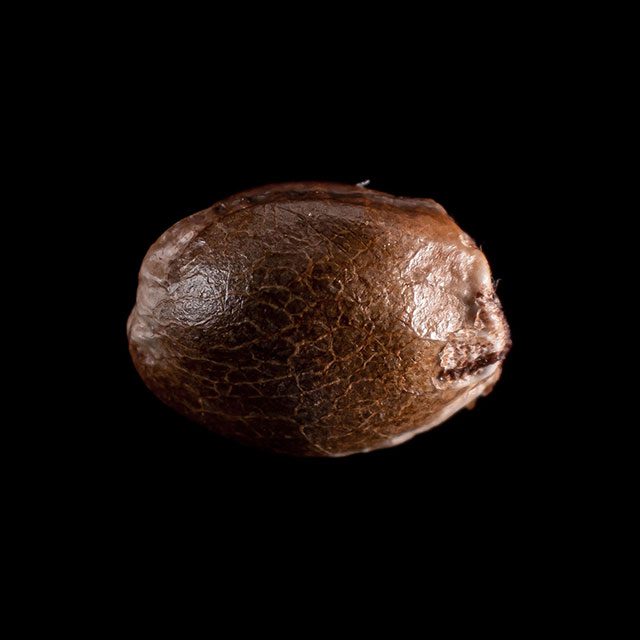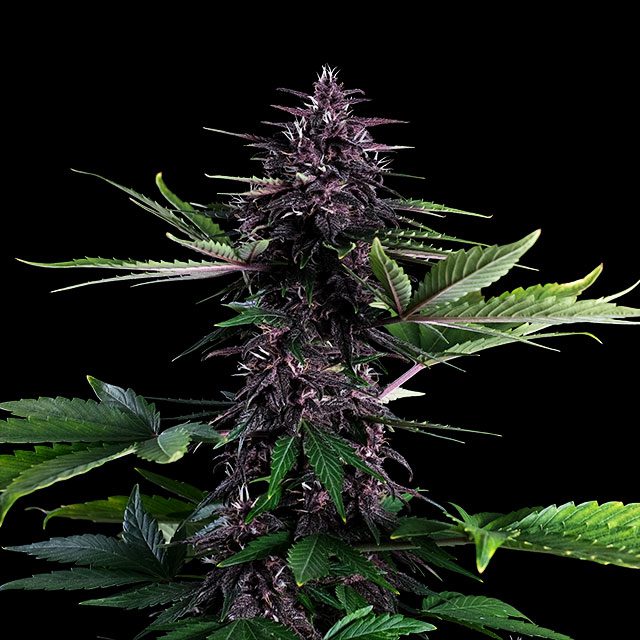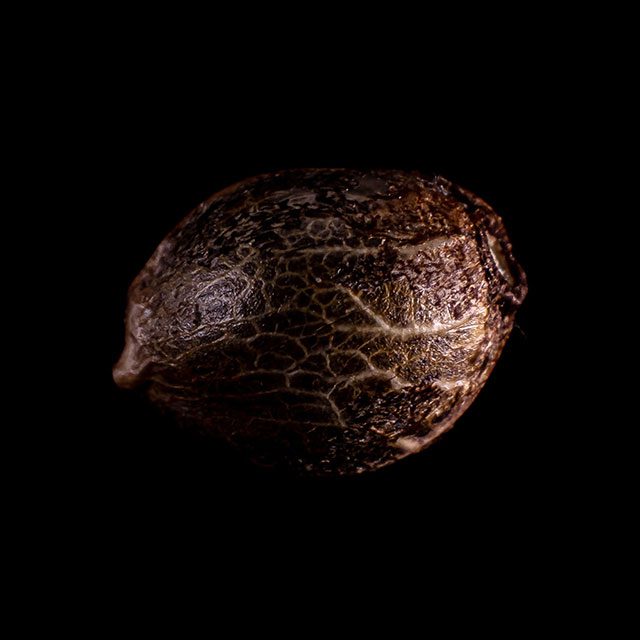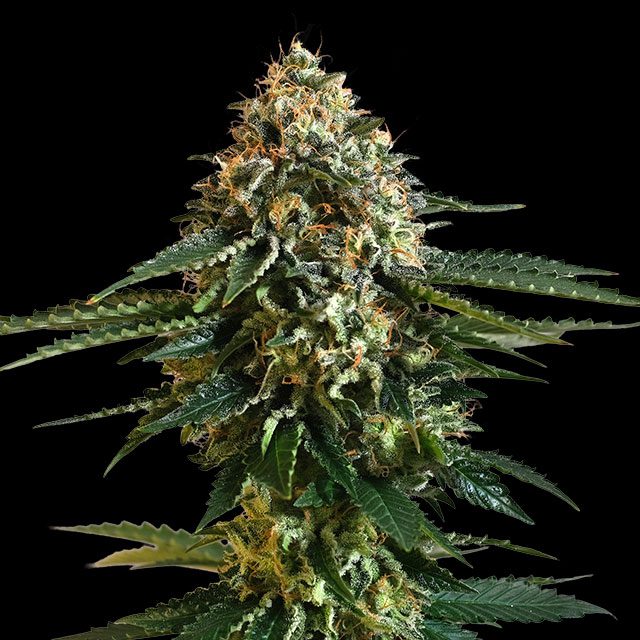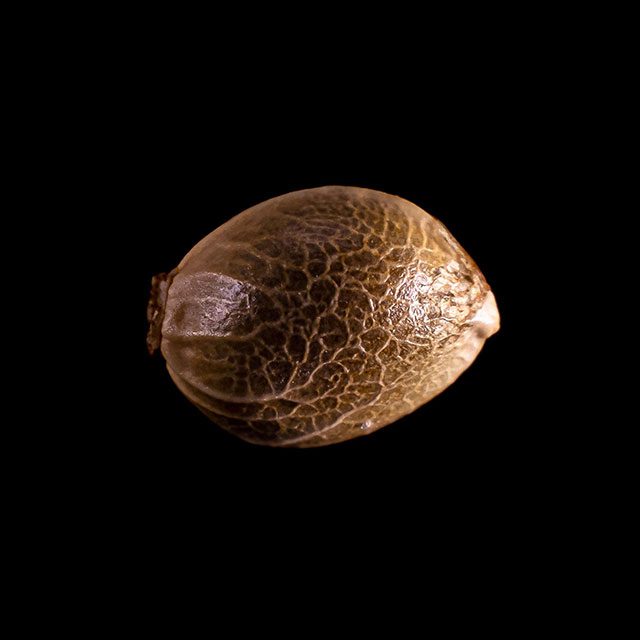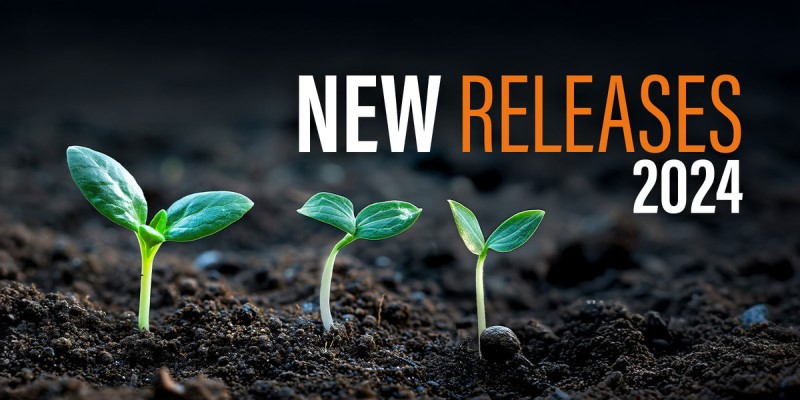Cannabis seeds Cannabinoids
The cannabis plant is known to contain at least 113 different cannabinoids, compounds that interact with our human endocannabinoid system and has many benefits for the body, mind and overall health. You’ve probably heard of CBD and THC, the two cannabinoids most commonly found in the cannabis plant. But there are other minority compounds, appearing in smaller concentrations, which have gained much attention in recent years for their potential properties.
In Kannabia Seed Company we are always at the forefront of the new marijuana varieties selection, trying to bring new genetics to the self-growers that allow maximising the content of cannabinoids that are emerging in the market. Until now these varieties have been almost commercially unavailable, with ratios of CBG, THCV or CBDV that were restricted to genetic research scientific laboratories.
Thanks to the selection of specific phenotypes using genetic markers, we have managed to launch onto the market varieties with a tiny amount of THC (less than 0.3%) that make this type of cannabis legal in most countries, while boosting up other minor cannabinoids that have a lot to offer both recreational and medicinal users.
So if you are looking for marijuana varieties with high cannabinoid content beyond THC, that will open a new range of possibilities to grow this plant, at Kannabia Seed Company we have developed a careful selection of options that will surely surprise you, both for its novelty and for its proven quality.
How do cannabinoids work?
Phytocannabinoids (phyto=plant) interact with the human body through the endocannabinoid system, which is responsible for regulating functions such as sleep, our immune system or mood. Cannabinoids exert their effects by binding to specific cannabinoid receptors present on the surface of cells. These receptors “listen” to conditions outside the cell and transmit information about these changing conditions inside the cell, initiating the appropriate response. Receptors are found in different parts of the central (or peripheral) nervous system, the two main types being called CB1 and CB2.
So imagine that your endocannabinoid system has a number of “parking spaces” labelled CB1 and CB2. Each type of cannabinoid prefers to “park” on a particular type of receptor; and the more receptors are used, the greater the benefit to the body and mind.
This helps us to understand how the theory of the ‘entourage effect’ works, which defends that several components of the plant (cannabinoids, terpenes…) act synergistically to enhance their properties among themselves, making its effects greater than those of a single component.
Marijuana seeds high in CBD
CBD (cannabidiol) has been the star cannabinoid in recent years that has broken the wall of prohibition, promoting the popularisation of cannabis in the therapeutic field. Although it was first isolated in the early 1940s, it did not arouse scientists’ interest for its anticonvulsant properties until the 1970s.
Only from the new century onwards became the object of numerous studies focused on its health benefits, confirming that it offers an effective treatment for severe forms of epilepsy, in addition to having anti-inflammatory, analgesic, anxiolytic properties against nausea and sedatives.
Although THC produces a revealing ‘high’, CBD is not psychoactive, producing no euphoria or changes in perception. This has made it a very attractive option for all those looking to incorporate cannabis into their lifestyle to balance health and well-being.
Research also suggests that CBD may help mitigate some of the THC less desirable features, such as anxiety, paranoia or impaired cognitive function. This makes CBD-rich strains an invaluable tool for more sustainable cannabis, which is now wining the heart of, not only medical users, but also recreational users looking for a more manageable marijuana for the day to day.
These growing interests in cannabidiol led Kannabia breeders get down to business and create new strains of marijuana with high levels of CBD. In our catalogue you can find different genetics of high CBD (up to 10%) and low THC (below 0.5%). Although you can also find balanced genetics that offer a CBD: THC ratio of 2:1, for those who want to enjoy the benefits of the ‘entourage effect’ at its best.
Cannabis seeds with high concentration of CBG
So far, both cannabinoids THC and CBD have been the scientists’ interest focus and consumers, but CBG (cannabigerol) has also begun to catch a lot of attention. Preclinical studies suggest that it can share many beneficial characteristics with CBD, as both have antioxidant, neuroprotective and analgesic properties.
Research suggests that CBG has a partial affinity for the CB1 and CB2 endocannabinoid system receptors, as does THC, which also produces its psychoactive effects through interactions with these receptors; but it has been observed that CBG acts as a buffer for this psychoactivity and can even help to relieve feelings of anxiety or paranoia that sometimes accompany the high levels of THC consumption.
CBG research is still in a preclinical stage, but available studies suggest it is a considerable therapeutic promise, possibly the next major player in cannabis treatments after the CBD boom. Its analgesic properties can outperform those of THC without the psychoactive effect; and there is also evidence suggesting that CBG may offer anticancer and antibacterial qualities.
However, there is a problem in accessing its benefits. While CBD and THC are found in the flower composition weight on a percentage up to 20%, in well-matured cannabis flowers CBG is virtually non-existent (less than 1%). That means growers need 20 times more biomass to obtain the same amount of CBG as a typical CBD or THC yield.
To obtain more productive CBG yields, Kannabia Seed Company breeders have used genetic selection to increase the concentration of this cannabinoid. And as result they have created varieties such our CBG Auto, a genetic with an incredibly high percentage in CBG of up to 7% and very low THC (below 0.1%), which makes this strain legal in almost all the world, since its psychoactive effect is non-existent.
These plants are not very common in seed catalogues yet, but they are highly sought after and are actively grown on a relatively large scale as CBG concentrates and distillates have become increasingly interesting for therapeutic research, making a new paradigm for both the scientific community and marijuana self-growers seeking new sensations.
Marijuana seeds high content in THCV
Another of the latest trends that generate much anticipation is THCV (tetrahydrocannabivarin), a minor cannabinoid that provides psychoactive effects with a sense of focused and energetic euphoria, but it also has potential therapeutic benefits to suppress appetite.
While the chemical structures of THC and THCV are very similar and may have some similarities in terms of psychoactive qualities, THCV is a unique cannabinoid because it is a biphasic compound: it produces different effects in different doses.
In high doses, it acts as a partial agonist (activator, but only slightly) of the CB1 receptor, such as THC, producing a psychoactive effect that is described as uplifting, but that keeps you lucid, focused, with enhanced creativity and motivation. The effect onset time is faster, but since THCV doesn’t link as strongly to the CB1 receptor site as THC, it has a shorter duration.
In the case of higher THC percentage plants the effect comes more progressively and stays longer, in a kind of long-distance cannabis marathon. With the THCV everything is intensity and speed, hence it is compared to the “racing car” of the cannabinoids.
However, at lower doses, THCV acts as a CB1 antagonist (blocker), that is, it prevents THC from binding to the CB1 receptor, reduces psych activity and increases appetite control by potentially increasing insulin sensitivity. Thus, while most people associate cannabis with increased appetite, THCV may have the opposite effect. For this reason, THCV is promoted as a diet aid or treatment for diabetes or obesity, being baptised as the “dietary herb”.
THCV it’s naturally found in marijuana in little amounts. Historically, strains with some THCV content have been difficult to cultivate and process, since they couldn’t be easily selected due to the low demand and the pricy isolation process.
However, thanks to years of intense breeding and stabilisation, in Kannabia we have managed to put on the market plants that produce viable amounts of this compound, specifically with 7% of THCV, which is balanced with 7% of THC, offering a balanced experience between both cannabinoids that allows you to get absolute control of the psychoactive experience.
High CBDV concentration Cannabis seeds
Cannabidivarin (CBDV) was identified in the late 1960s, but due to the prohibition of cannabis, it has only recently been investigated, proving to be a powerful anticonvulsant, in addition to possessing other properties that make it a great promise in the medical field.
CBDV is non-psychoactive compounds that will not give you the euphoric high that is often associated with THC cannabis high. But when it comes to the difference between CBDV and CBD, they both have similar benefits. However, cannabidivarin is more suitable for treating neurological disorders and epilepsy activity, while CBD is often used for insomnia, relieving daily stress, reducing anxiety symptoms and other similar effects.
However, unlike CBD, CBDV is in a much lower concentration in the cannabis plant, so its use is more expensive. If you are looking for strains rich in CBDV, you should look for landrace indica that are pure without any modification, but this cannabinoid can also be found in some sativa strains.
Or directly choose our CBDV Auto, the fastest way to access this cannabinoid, because thanks to intensive genetic selection work we have been able to launch on the market an autoflowering marijuana plant that combines the highest cannabidiol and cannabidivarin indicators on the market, with the lowest THC index possible (less than 0.2%) and a CBDV: THC ratio of 25:1, so the psychoactive effect is imperceptible.
Cannabinoid marijuana seeds at the best price
As you can see, at Kannabia Seed Company we are aware of the research and development of varieties that can offer plants with high content of these new cannabinoids. Not only CBD, with a range of options that will surely meet your expectations, but those who traditionally have not had the opportunity to come to the fore for being in small quantities in marijuana plants.
Thanks to our breeders work, we have managed to increase the concentration of these cannabinoids to levels never seen before, making available to our customers new strains that a few years ago would be impossible to grow. And always at the best price on the market, as it is a highly specific product that houses not only a great exclusivity, but also the inherent quality that characterises our seed bank.





